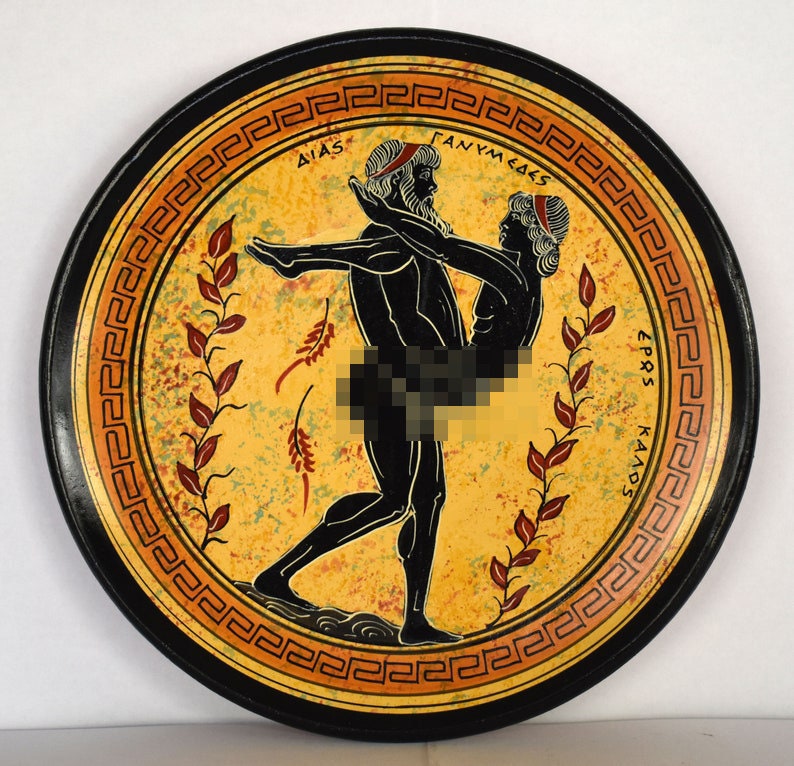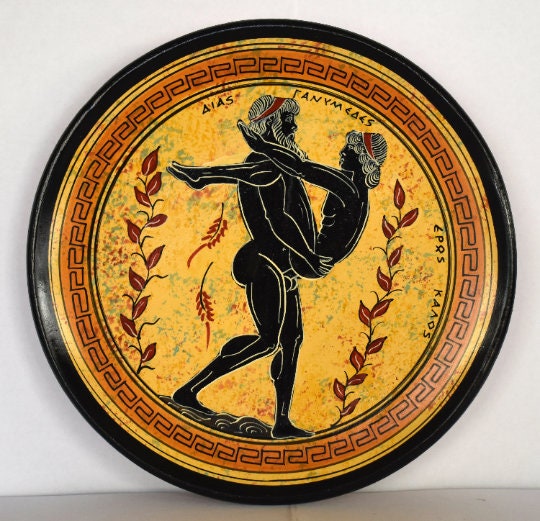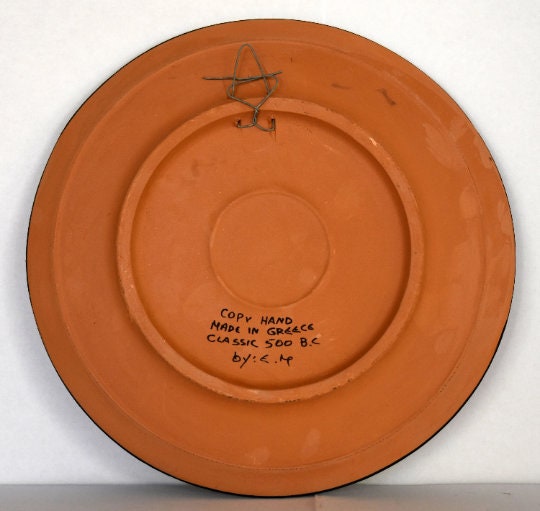Gallery Demeter
Zeus and Ganymedes - Homosexual Love - There is only one happiness in this life, to love and be loved - Ceramic plate - Handmade in Greece
Zeus and Ganymedes - Homosexual Love - There is only one happiness in this life, to love and be loved - Ceramic plate - Handmade in Greece
Couldn't load pickup availability
Condition: New, Handmade in Greece
Diameter: 20 cm - 7,9 inches
Weight: 400 g
Material: clay, paint, ceramic, terracotta
In Greek mythology Ganymedes is a divine hero whose homeland was Troy. Homer describes Ganymede as the most beautiful of mortals, abducted by the gods, to serve as Zeus's cup-bearer in Olympus.
[Ganymedes] was the loveliest born of the race of mortals, and therefore
the gods caught him away to themselves, to be Zeus' wine-pourer,
for the sake of his beauty, so he might be among the immortals.
— Homer, Iliad, Book XX, lines 233–235.
The myth was a model for the Greek social custom of paiderastía, the romantic relationship between an adult male and an adolescent male. The Latin form of the name was Catamitus (and also "Ganymedes"), from which the English word catamite is derived.
To understand sexuality in ancient Athens it's necessary to remember that the Athenian culture had no corollary to many of the ideas at the root of modern Western attitudes towards sex. Athens had no Eve, shamed by her nakedness, no commandments carved in stone.
What they did have carved in stone were phalluses. Lots and lots of them, by some accounts. Male sexual organs were frequently included in art, literature, drama and even the streets of Athens. Stone pillars called herms, featuring a bust of the god Hermes at their top and an erect phallus at their base, were placed outside houses for good luck.
Nudity was, if not exactly commonplace, perfectly acceptable. Athletic competitions and many artistic representations of the human form were undertaken nude.
Sex was an act defined by the phallus. It was not an act done with a partner, but rather to a partner. The active party penetrated the passive; in all but the rarest case the active party was an adult male citizen. The division of rights, responsibilities and roles in sexual relationships was not simply split along gender lines, but also lines of class, and of age. to late twenties. In Athens, where the majority of the written sources comes from, this was partly because they were expected to complete compulsory military service beforehand.
ΛΜ ΠΙΑΤΟ ΕΡΩΤΙΚΟ Νο3 20 ΕΚ - 6,5





